To Catch a Killer (2023) – is a strange film, that outright LIES to it’s intended viewers.
It’s not about how they are going to catch a killer, this title is just a feint, to fool critics and audience alike.
The purpose of the film is to ask some very uncomfortable questions sneakily, so subtly that viewers are not even aware that they were asked anything, yet the question will linger and doubt will fester and maybe this will lead to finding some answers in oneself.
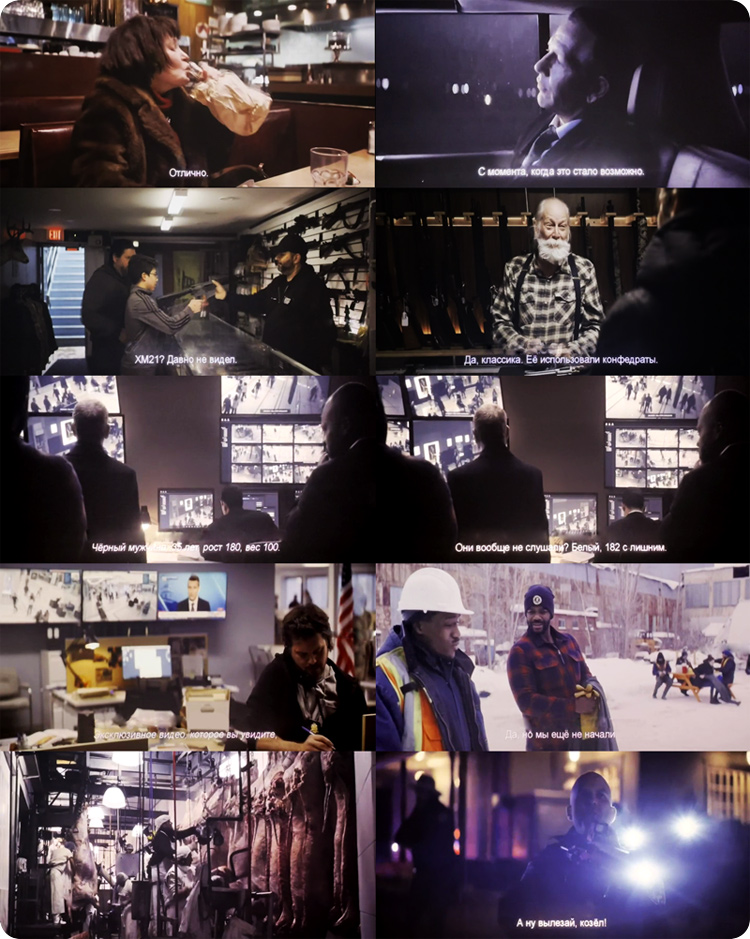
Problems stated, questions posed:
- Homelessnes
- Sexual harassment
- Human and LGBT rights
- Gun control
- History
- Racism
- Sexism
- Police bias
- Media responsibility
- Media sensationalism
- Ecology
- Pollution
- Politics and populism
- Workers rights
- Police unprofessionalism
- Police brutality
And it’s not an attack on any one country.
You see people at the mall, workplace, struggles with higher-ups, who don’t care one bit about solving the crime, but only about how it will reflect on their political aspirations (and everything can be sacrificed for that).
It’s universal.
I look at those human interactions and it’s the same everywhere.
I look at these landscapes and see a typical Russian small town during winter:
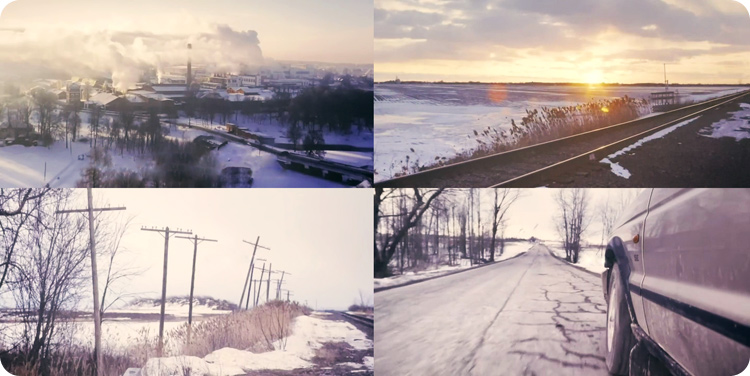 РУС!реал
РУС!реал
– How long have you been married?
– Ever since we were allowed.
This snippet of dialog jolts the viewer with it’s choice of words: the notion that you need to be ALLOWED to get married feels instantly WRONG, and yet… I find it much more effective that just silently doing token “representation”.
This jolt is much needed, it shakes up viewer and pokes at their assumptions about what kind of film they are watching just in time to pose the main Question right in the next scene.
The Question is stated outright, as well as the answer author proposes and later puts to test.
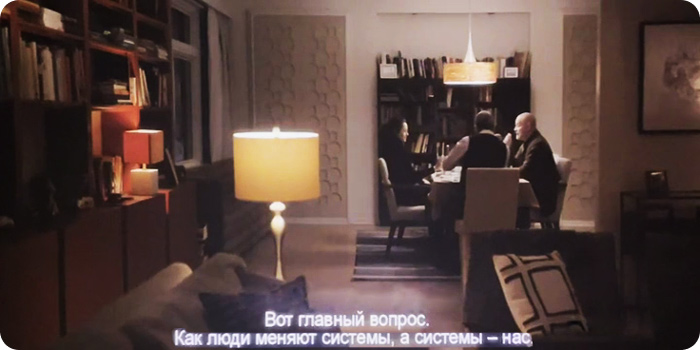 Big question to ask.
Big question to ask.
– That’s the big question. How people shape systems and how systems shape us.
Today it’s all about the STATUS.
People who have it will kill to protect it.
People who want it will kill to achieve it and everyone else will be crushed inbetween.
Governments, corporations, high school.. pattern seems to be the same.– How do we change that?
– You need empathy. Connection.
If we truly see ourselves in other people, we want to raise them up, not bring them down.
This is exactly what our protagonist will try to do when facing their perpetrator – establish connection, empathise, work together.
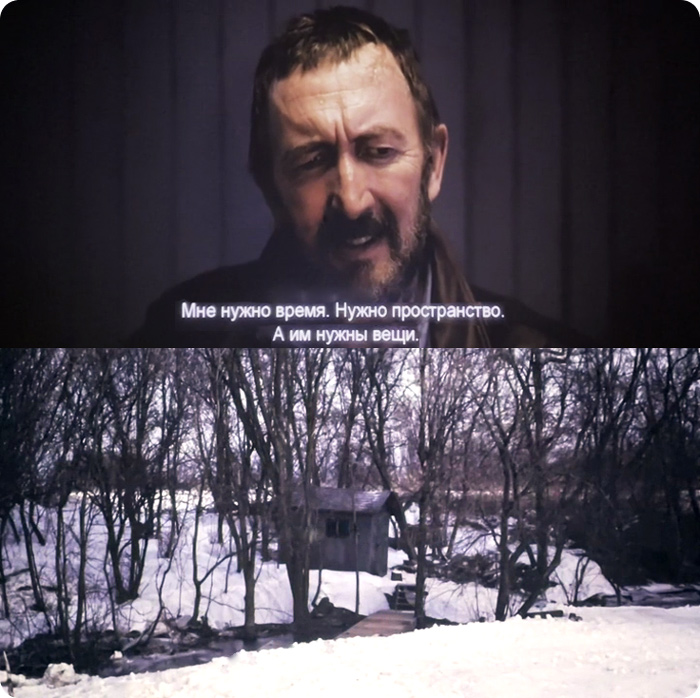
The perpetrator with his need for space and time, with his cabin in the woods reminds me of Henry David Thoreau.
He even looks like him!
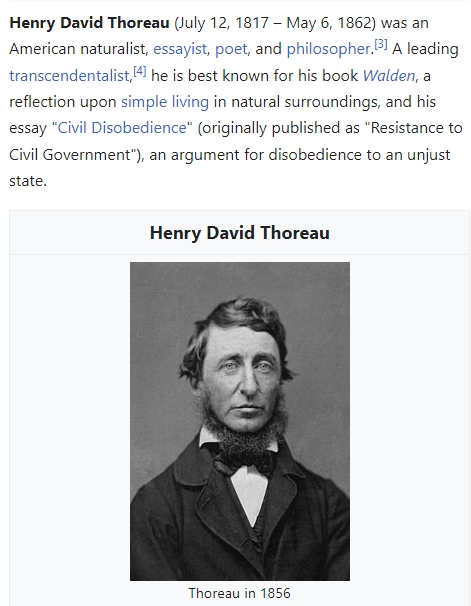
In the last arc wounded and dying perpetrator is hunted down with the whole might of police force.
It’s all blinking lights, whole fleet of cars, helicopters in the air, radio chatter and sirens, all hands on deck.
Hunters form a line and their prey is trapped.
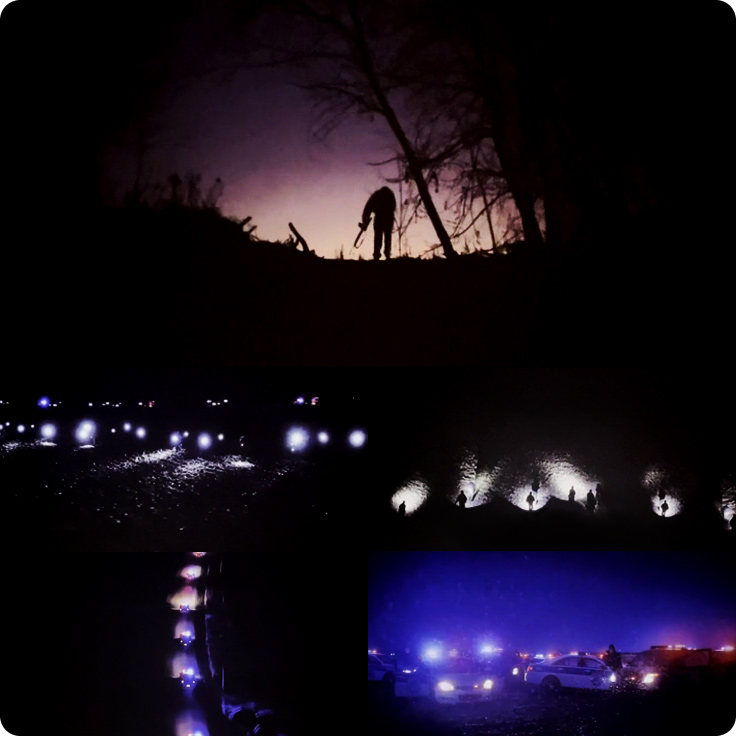 We got his tracks!
We got his tracks!
This comes after this man stated his need for quiet, desire and inability to hide from society.
Makes viewer feel sick long before suicide by the firing squad of cops.
It’s a strange sad film, but it’s got sharp teeth and claws, and it puts boredom, glory, beauty and horror on display:
 Boredom and Glory.
Boredom and Glory.
 Beauty.
Beauty.
 Horror
Horror
The essential advantage for a poet is not to have a beautiful world with which to deal;
it is to be able to see beneath both beauty and ugliness; to see the boredom, and the horror, and the glory.
The movie was great ;D nothing wrong with it. People are just sensible, and don’t understand 1 single think: Problems will always exist “get used to it”
I think, that “get used to it” is a simplification on par with treating this film as story about “how they caught a killer”.
Inability of perpetrator to “get used to it” and to adapt to living in the world is another theme of the film, and reasons for that are complex and multi-layered. It’s not just that he personally failed, but he was also failed by others and result is not pretty.